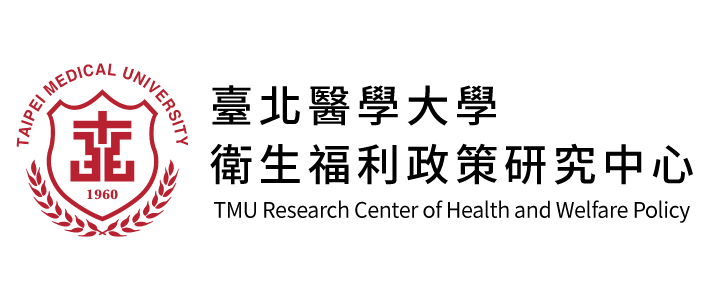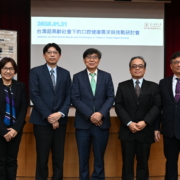【Event Report】The Taipei Medical University Health and Welfare Policy Research Center hosted the seminar “Oral Health Needs and Challenges in Taiwan’s Super-Aged Society in 2025,” discussing strategies to address the oral health needs of the elderly.
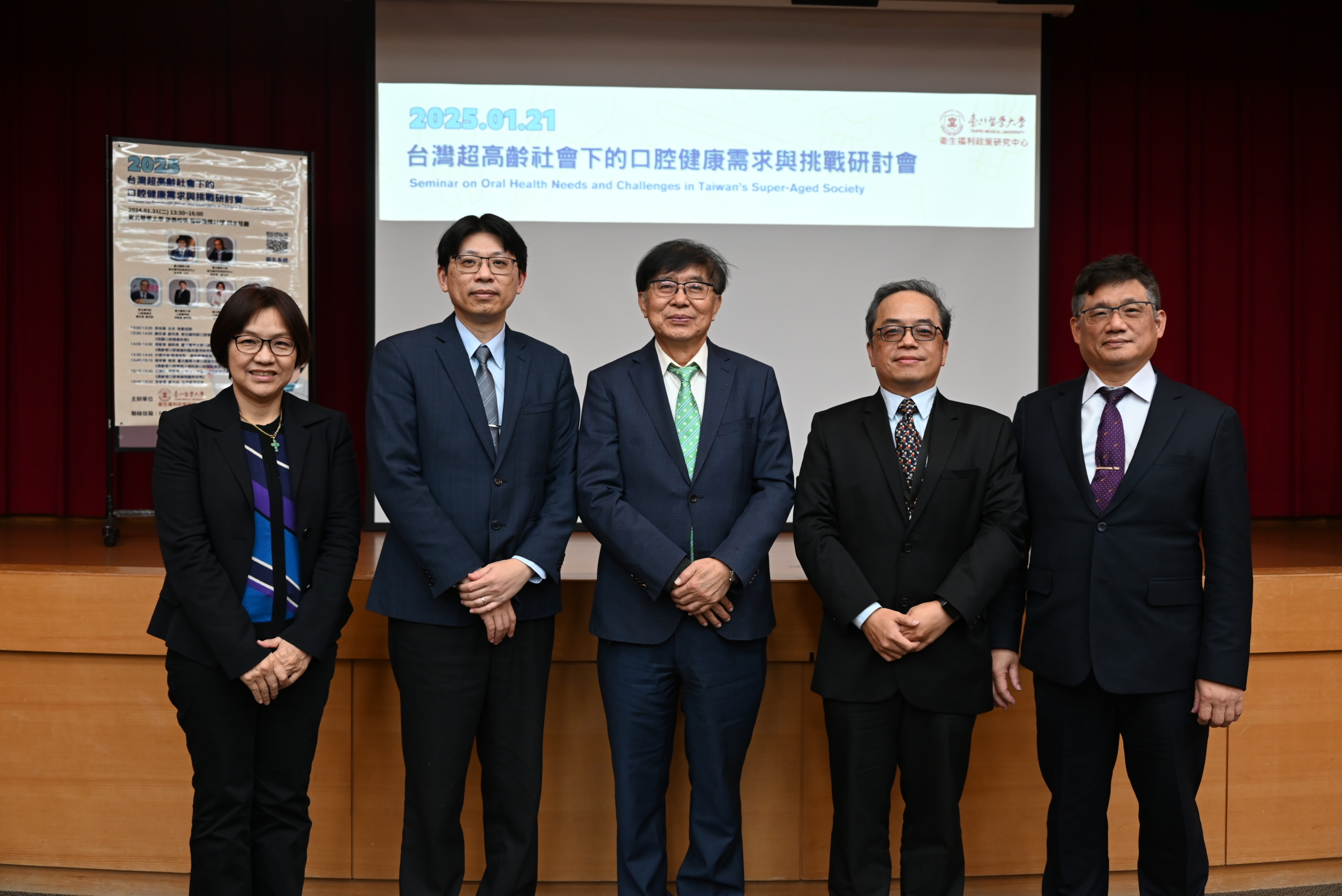
(From left to right: Professor Chou Hsing-Hua, Department of Oral Hygiene, Taipei Medical University; Associate Dean Feng Sheng-Wei, College of Oral Medicine, Taipei Medical University; Director Lee Po-Chang, Taipei Medical University Health and Welfare Policy Research Center; Deputy Director Yen Chung-Han, Oral Health Division, Ministry of Health and Welfare; Chairman Chiang Hsi-Jen, Taiwan Dental Association)
Academic Symposium on “Oral Health Needs and Challenges in Taiwan’s Super-Aged Society” Organized by Taipei Medical University’s Health and Welfare Policy Research Center on January 21, 2025
The symposium delves into addressing the oral health needs of the elderly from four key perspectives: policy support, clinical practice, technological innovation, and care promotion. Through the sharing of expert experiences and interdisciplinary exchanges, the event aims to enhance the oral health management of older adults and tackle the challenges posed by a super-aged society.
Lee Po-Chang, Director of the Health and Welfare Policy Research Center at Taipei Medical University
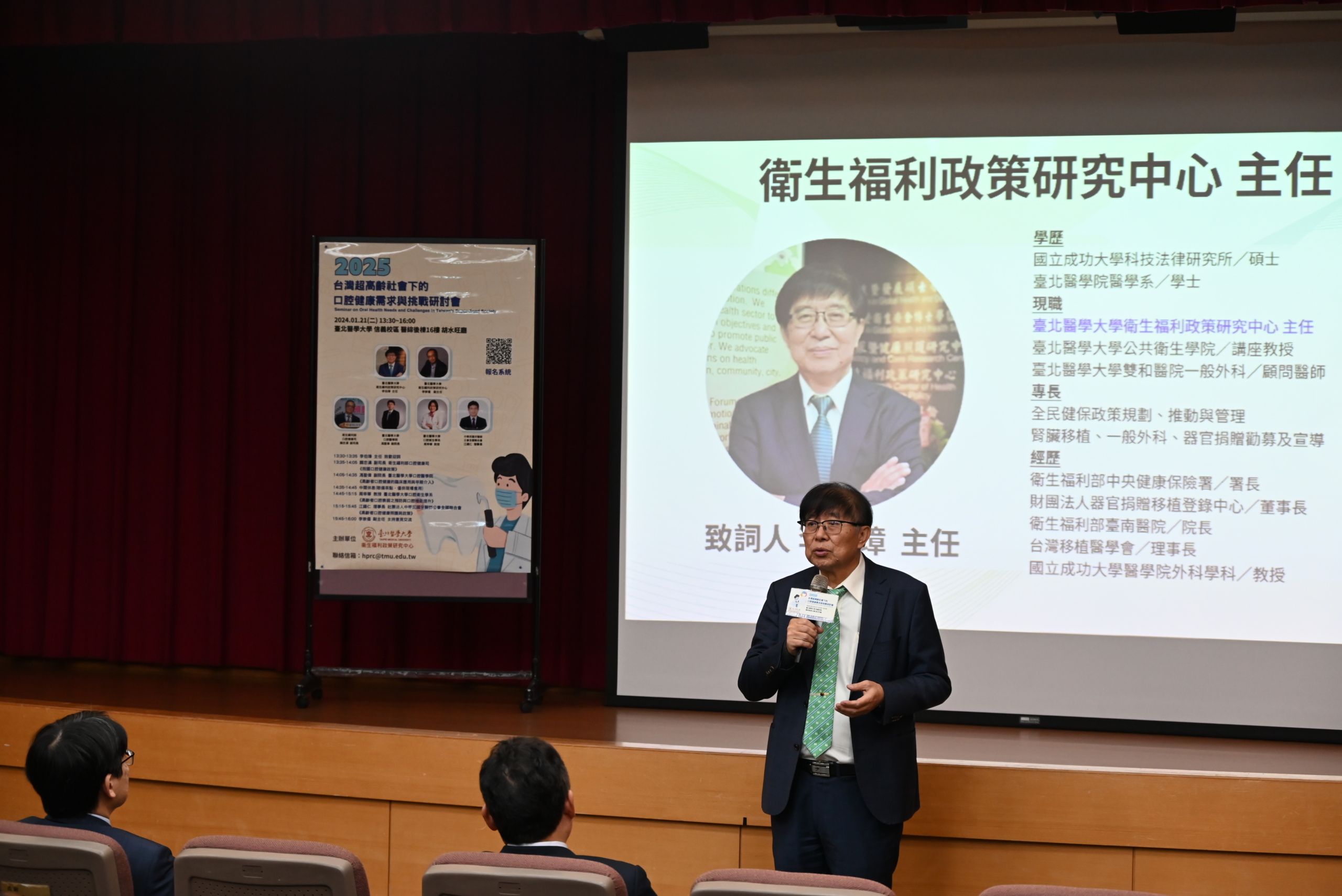
Director Lee emphasized that Taiwan is now a super-aged society. Drawing from his past experience as a physician, he pointed out that dental care for the elderly is both labor-intensive and complex. He highlighted that poor oral health in older adults significantly affects their quality of life, yet many are hesitant to visit dentists. Besides clinical care, Lee stressed the importance of societal education. The symposium brings together speakers from diverse backgrounds, fostering dialogues to promote awareness of the importance of oral care for the elderly.
Yen Chung-Han, Deputy Director of the Ministry of Health and Welfare’s Department of Oral Health
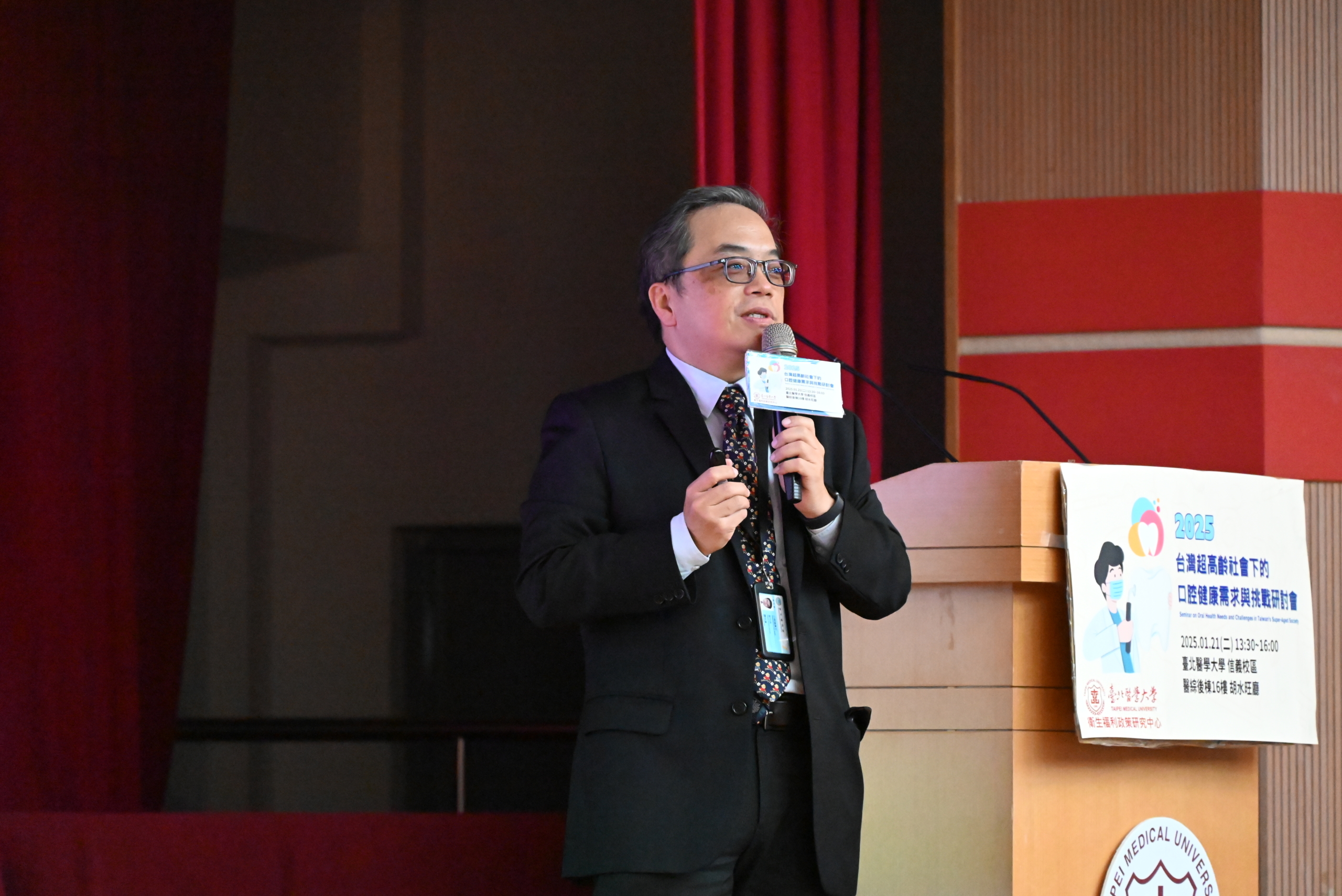
Deputy Director Yen remarked that the symposium’s theme is highly forward-looking, as oral health serves as the foundation of overall health. WHO studies indicate that oral diseases are a critical global health issue. The Ministry of Health and Welfare (MOHW) has implemented various policies to improve oral health for all age groups, from children to the elderly. Initiatives include promoting fluoride varnish for children, expanding oral health services in rural areas, and building a dental network for special needs patients. Key policies in 2025 focus on the legislation of the Betel Nut Health Hazard Prevention Act and the promotion of oral care models for infants and toddlers. Yen expressed hope that these efforts will contribute to achieving WHO’s 2030 goal of universal health coverage, improving oral health and the quality of life for all citizens, and laying the foundation for a healthier Taiwan.
Feng Sheng-Wei, Vice Dean of the College of Oral Medicine, Taipei Medical University
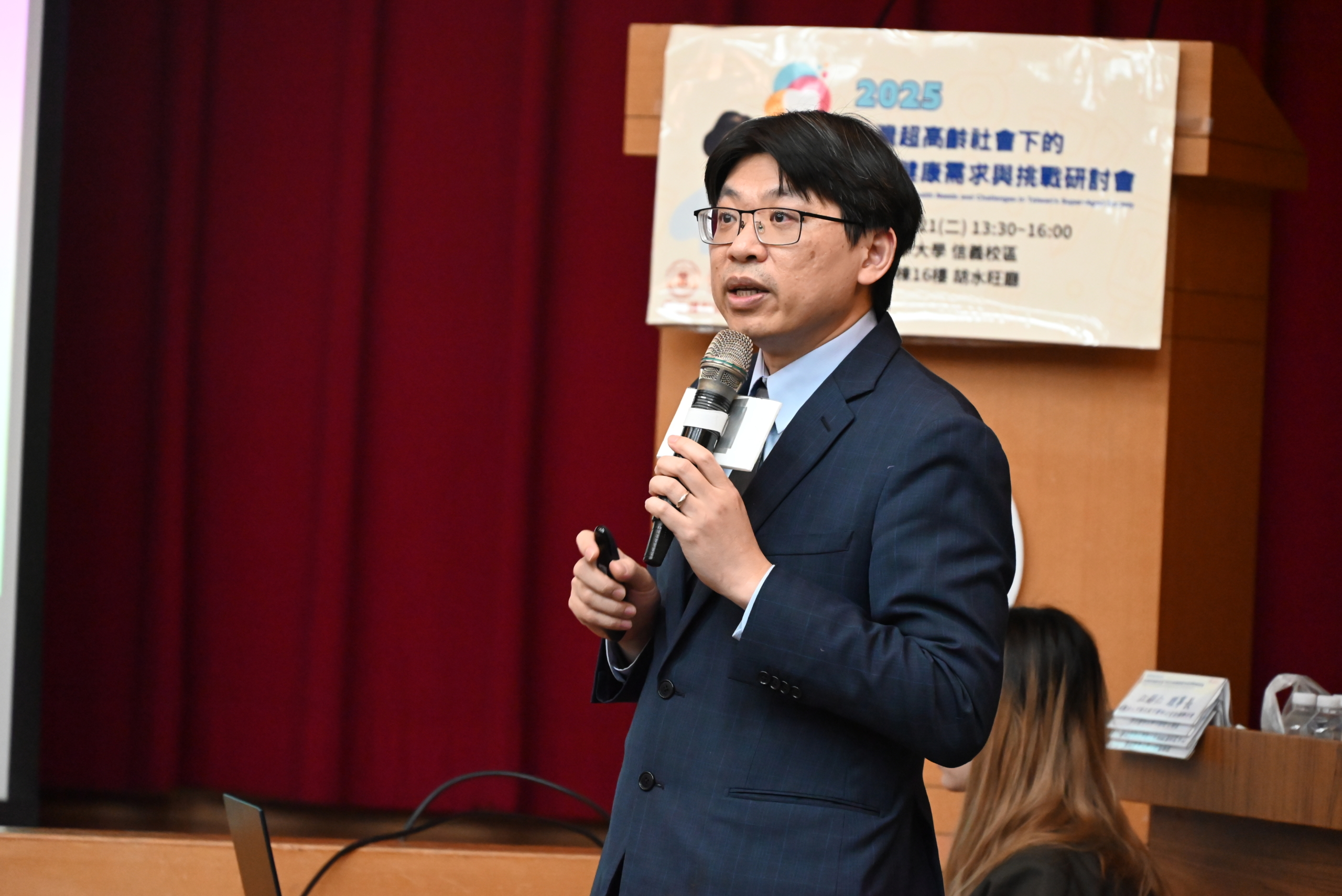
Vice Dean Feng referenced a 2024 statement by Harvard University, which noted that maintaining oral health can help prevent other diseases in older adults. As Taiwan enters a super-aged society in 2025, oral health has become a critical policy issue. With age, the risk factors for oral diseases increase. Feng recommended early oral health screenings, fluoride varnish applications for disease prevention, and leveraging digital and AI technologies to enhance treatment efficiency, such as 3D-printed dentures and AI disease detection. He also emphasized the importance of strengthening community oral health education and establishing specialized dental care models for older adults, thereby improving their quality of life and promoting healthy aging.
Chou Hsing-Hua, Professor of Oral Hygiene, Taipei Medical University
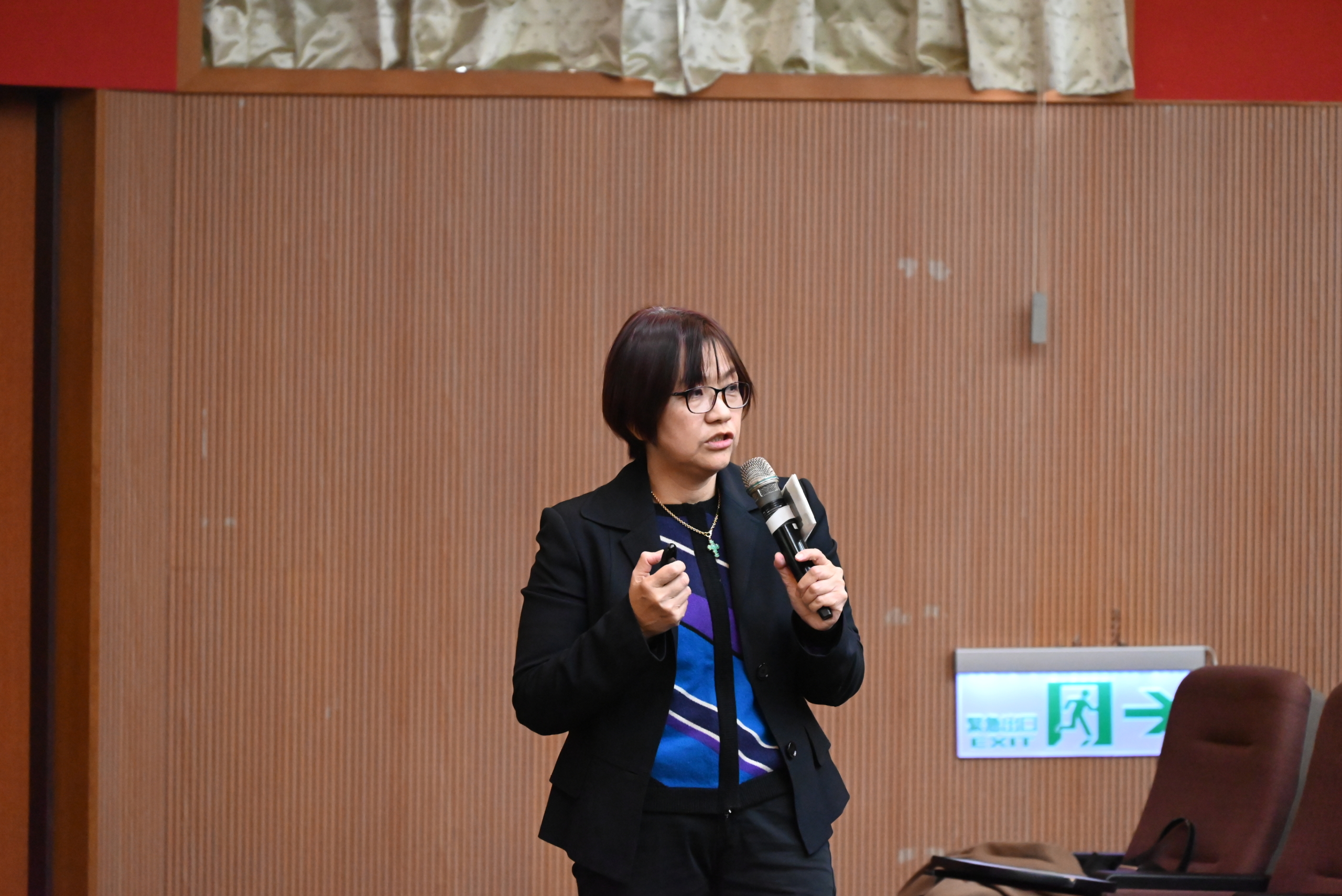
Professor Chou highlighted that one in ten older adults experiences mild or severe swallowing difficulties. The prevalence of oral frailty among seniors requires greater attention. Studies in Japan show that the gap between healthy life expectancy and average life expectancy (9–12 years) is primarily due to frailty. Oral frailty often marks the onset of health issues in older adults, leading to malnutrition and sarcopenia, which in turn affect healthy life expectancy. Chou suggested adopting Japan’s approach, where medical professionals, dentists, and nutritionists collaborate to deliver community-based oral health education, screenings, and consultations for older adults. By starting with oral health education, the gap between healthy and average life expectancy can be reduced, enabling older adults to live healthier lives.
Chi Hsi-Jen, Chairman of the Taiwan Dental Association
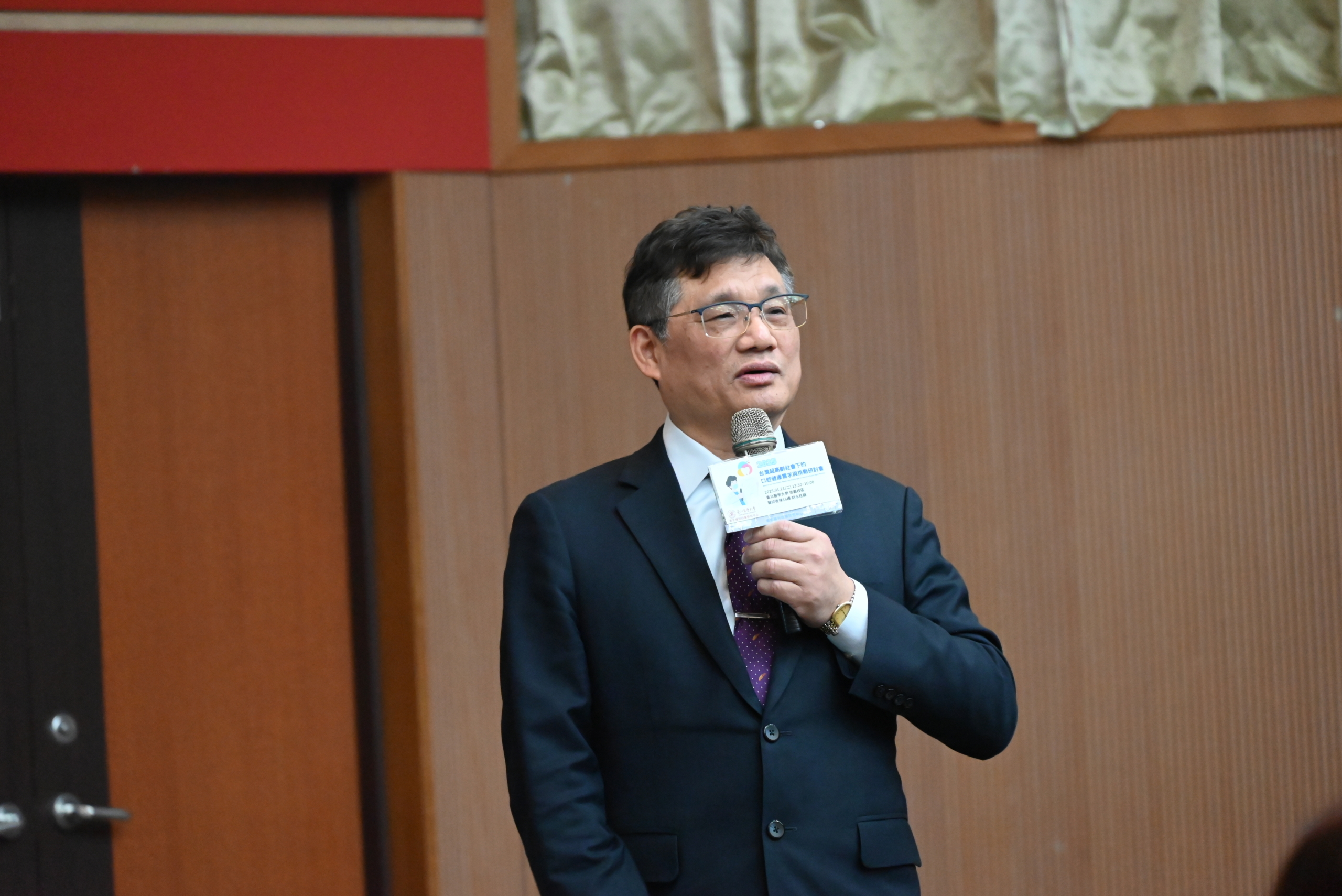
Chairman Chi emphasized that Taiwan has the highest incidence of oral cancer globally, underscoring the importance of oral health education. The Taiwan Dental Association actively collaborates with MOHW to promote policies for improving oral health among older adults. Initiatives include strengthening efforts to combat tobacco and betel nut use, advocating for daily use of fluoride toothpaste, preventing periodontal disease and dry mouth, and partnering with communities to organize oral health lectures and screenings. Chi also urged the government to expand denture subsidies for economically disadvantaged seniors, develop oral hygiene aids, and strengthen home and institutional care services. He concluded by stating, “Investing in oral health is an investment in the happiness of the nation.” These measures will provide a solid health foundation for the challenges of a super-aged society, contributing to the realization of the “8020” goal—enabling 80-year-olds to retain 20 natural teeth.
Policy Recommendations
- Enhance Prevention and Screening for Oral Health in Older Adults
- Implement early oral health screening programs for older adults, with regular check-ups to prevent diseases.
- Provide preventive treatments such as fluoride varnish to reduce oral disease prevalence.
- Expand dental services for special needs patients, ensuring coverage for rural and disadvantaged populations.
- Deepen Oral Health Education and Awareness Campaigns
- Establish interdisciplinary professional teams (including medical doctors, dentists, and nutritionists) to deliver community-based health education, drawing inspiration from Japan’s model.
- Use simple and accessible methods to educate older adults on proper oral care.
- Encourage seniors to overcome their fear of dental visits, fostering a friendly healthcare environment.
- Promote Digital and AI Technology Applications
- Develop and utilize 3D printing technologies for dentures, enhancing treatment efficiency and outcomes.
- Promote AI-based disease detection to assist dentists in precise diagnoses.
- Establish digital health records to facilitate personalized and comprehensive health management.
- Legislative Support and Economic Assistance Policies
- Expedite the legislation of the Betel Nut Health Hazard Prevention Act to strengthen tobacco and betel nut control.
- Expand denture subsidy programs for economically disadvantaged seniors to ease their financial burden.
- Develop oral hygiene aids to support daily health maintenance for older adults.
- Integrate Elderly Oral Care with Broader Health Goals
- Promote home and institutional oral care services to provide professional support for older adults.
- Collaborate with communities to host health lectures and screening events, raising overall health awareness.
- Work towards achieving the “8020” vision, enhancing the healthy life expectancy and quality of life for the elderly population.
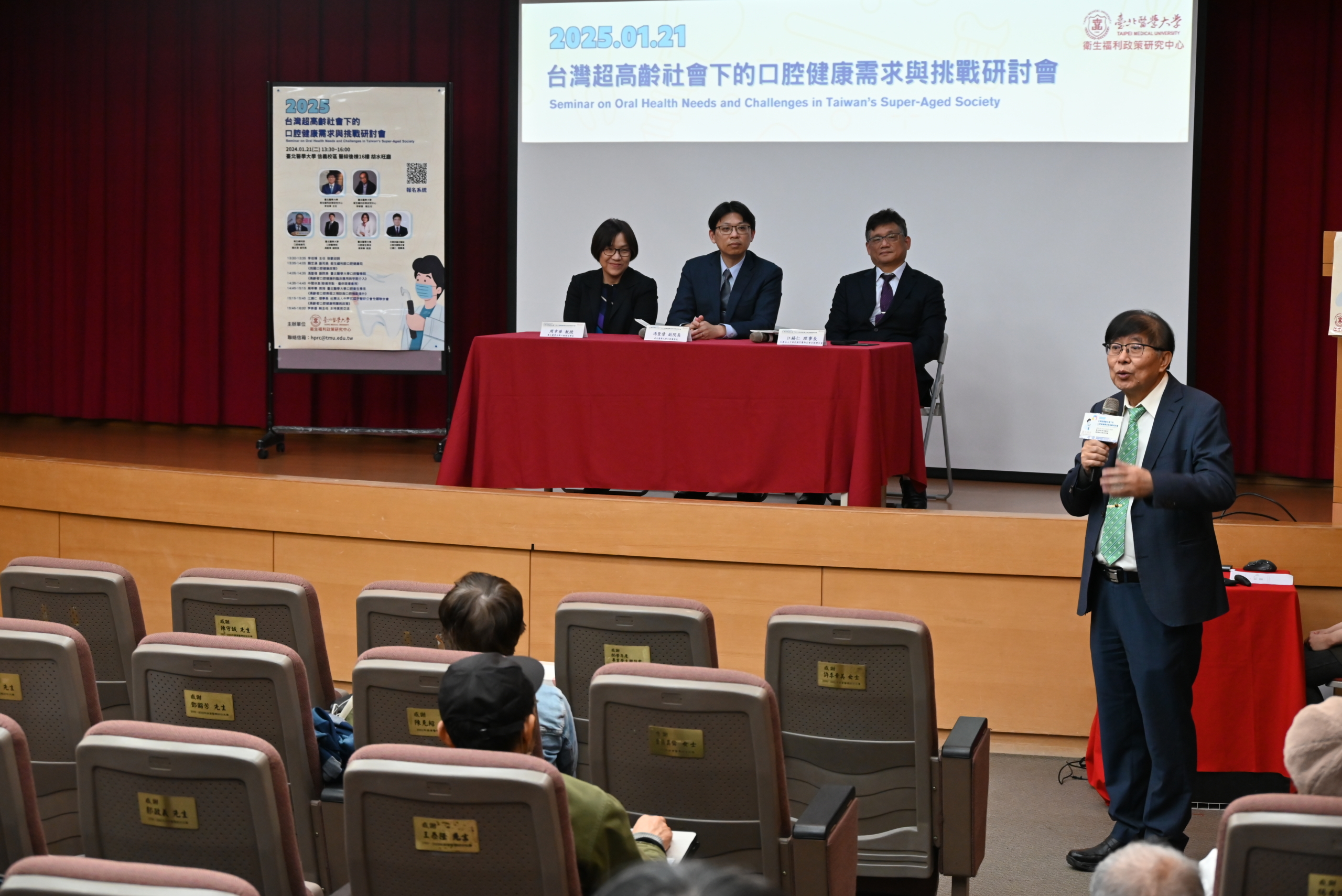
(From left to right: Professor Chou Hsing-Hua, Department of Oral Hygiene, Taipei Medical University; Associate Dean Feng Sheng-Wei, College of Oral Medicine, Taipei Medical University; Chairman Chiang Hsi-Jen, Taiwan Dental Association; Director Lee Po-Chang, Taipei Medical University Health and Welfare Policy Research Center)
Related News Reports
- 2025.01.21 Taiwan Times: How Can the Elderly Maintain Oral Health? Doctor: Brushing Is the Simplest Way
https://anntw.com/articles/20250121-iJ5m - 2025.01.22 Humanity TV: Long-Term Medication May Cause Dry Mouth — Collaborative Care from Physicians and Dentists to Protect Elderly Oral Health
https://www.youtube.com/watch?v=d7BHK2SoUbM
